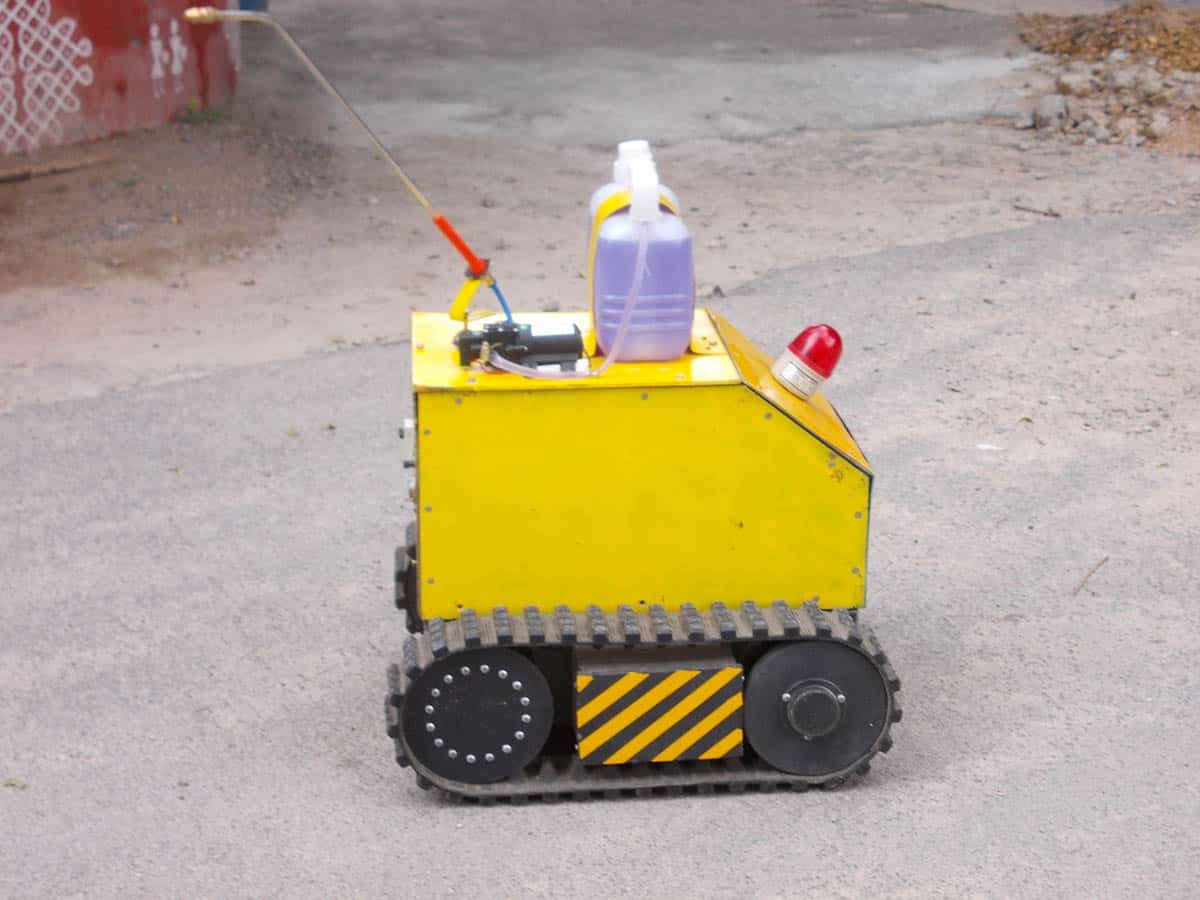Yunus Y. Lasania
Hyderabad: In an innovation that may help households and offices keep their premises free from bacteria, virus, etc, the Hyderabad Science Society has developed a sanitiser robotic vehicle which can be used to spray sanitizing liquid on roads and near buildings. The vehicle is remote controlled, allowing the operator to keep a safe distance away from infected areas, which will go a long way in helping us steer clear of the Coronavirus (Covid-19) virus.
The robotic sanitizer comes from the stable of the HSS, which is one of Hyderabad’s oldest voluntary organizations in India, that works in the area of science and technology. Established in 1948, the HSS has developed a lot of things over the last seven decades.
How it works
The robotic vehicle moves on rubber tracks and is capable of moving over rough roads, said Sanjar Ali Khan, one of the founding members of the HSS, who is 90 years old. The battery of this robot, when fully charged, will operate the vehicle for about two hours. The sanitizing liquid is stored on the vehicle and the spray mechanism covers an angle of 90 degrees, as the on-vehicle pump then performs the spraying action.
“At present, one can handle this remote-controlled robotic sanitizer from a distance of 10 meters, but if we have a more powerful transmitter, then the distance can be greater,” informed Khan. He added that in areas where there is contamination in buildings and human labour cannot be employed due to risks from the Covid-19 virus, this remote-controlled vehicle is a viable alternative.
The present vehicle is a prototype and alterations can be made to suit local conditions. Sanjar Ali Khan said that the robot was designed in stages. “We originally designed this for border security two years ago on a request by the government of India. The base was ready, and it took us a month to modify it. Anyone interested can place an order, and the time it takes to create one takes three months as the material is not available,” he added.
The battery of one robot when fully charged will operate the vehicle for about two hours.

How much does it cost?
The higher the orders, the cheaper and faster it will be. Ordering 10 robots will cost Rs.50,000 per unit, and if the number is lesser, then the cost will go up as well. For further information contact the Hyderabad Science Society. Email: scisoc.hyd@gmail.com.
Hyderabad Science Society
In 1948, a group of students from the Nizam College decided to do their bit to promote science and help others learn different subjects and set up the Hyderabad Science Society. Situated at Mehdipatnam, the society has been establishing laboratories for undertaking experimental work, among other things.
It completed 50 years in 1999 April with distinguished scientist Dr. P.M. Bhargava presiding over the event. Its main activities have centered around research and development in nuclear physics, electronics, automation and biotechnology. The first remote controlled robot in India was developed by the HSS during 1980.
The writer is a Hyderabad-based journalist who has previously worked for The New Indian Express, The Hindu and Mint.

